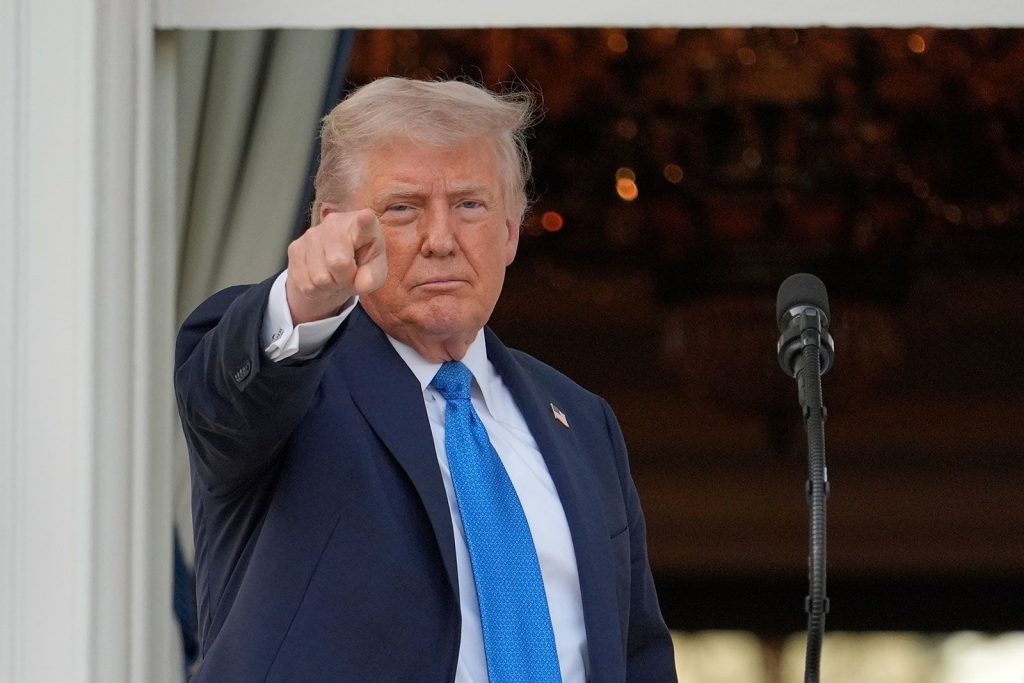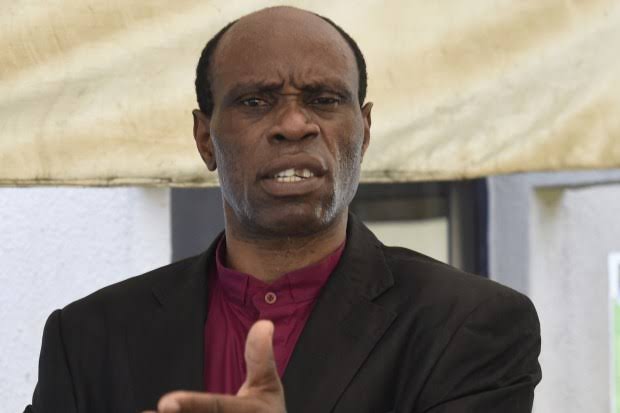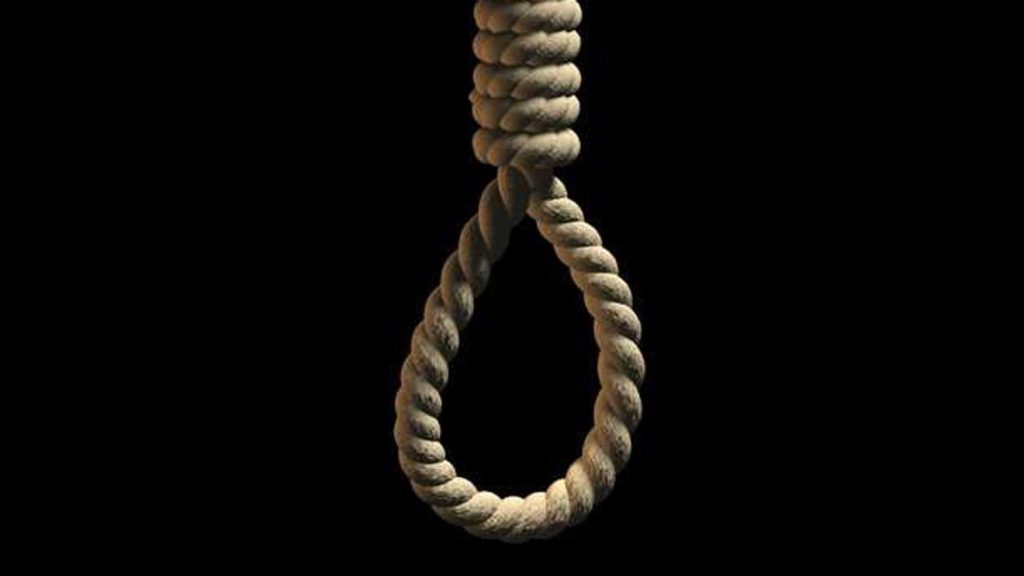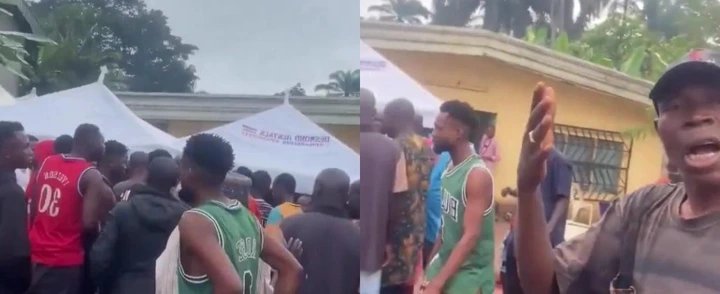Politics
Chief judge’s leave stalls Rivers state impeachment Process
DDM News

The Chief Judge of Rivers State, Hon. Justice Simeon Chibuzor Amadi, has announced a one-year recess leave.
Diaspora digital media (DDM) gathered that this decision comes at a critical moment as the state faces a worsening political crisis.
According to DDM, the Chief Judge’s absence will impact the ongoing impeachment threat against Governor Siminalayi Fubara.
The Chief Judge plays a vital role in the impeachment process, as his authorization is required for key legal steps.
With his leave, the impeachment effort has encountered a serious setback.
A source familiar with the matter disclosed that the Chief Judge wants to protect his professional integrity.
The source, speaking anonymously, stated that he does not want his reputation to be damaged by the ongoing political conflict.
“The Chief Judge has spent years building a career based on fairness and integrity,” the source said.
“He does not want the political turmoil to stain his legacy,” the source added.
The political crisis in Rivers State worsened after a Supreme Court ruling reinstated 27 defected lawmakers.
These lawmakers, formerly People’s Democratic Party (PDP) members, had switched to the All Progressives Congress (APC).
The reinstated lawmakers, led by Martins Amaewhule, quickly resumed their legislative activities.
They issued a 48-hour ultimatum to Governor Fubara, demanding he present the 2025 budget or face impeachment proceedings.
Under Nigerian law, the Chief Judge is responsible for approving the establishment of an investigative panel for impeachment.
Without the Chief Judge’s approval, the impeachment process cannot move forward.
This has created a major legal obstacle for the lawmakers pushing for the governor’s removal.
Governor Fubara alone has the authority to appoint an Acting Chief Judge in the absence of the substantive Chief Judge.
Without his approval, the impeachment process cannot proceed under the law.
This situation has placed Fubara in a powerful position.
Analysts believe the Chief Judge’s leave could be a strategic decision to prevent a constitutional crisis.
Given the political tensions in Rivers State, his involvement in the impeachment process could have worsened the situation.
By stepping away, the Chief Judge has effectively delayed any immediate efforts to remove Governor Fubara.
Political observers suggest that this move will significantly impact the balance of power in Rivers State.
Supporters of the reinstated lawmakers argue that the impeachment threat is a necessary response to Governor Fubara’s alleged defiance.
Meanwhile, Fubara’s allies see the impeachment push as an extension of former Governor Nyesom Wike’s influence.
The Chief Judge’s absence has added complexity to the already intense power struggle.
For any further impeachment attempts, an Acting Chief Judge must be appointed by Governor Fubara.
However, analysts believe Fubara will not approve an Acting Chief Judge who might facilitate his removal.
This legal deadlock means the impeachment process is indefinitely stalled.
The Chief Judge’s leave has created a political vacuum, leaving both factions uncertain about their next steps.
His decision underscores the delicate balance of power within the state.
With no immediate pathway to impeachment, Governor Fubara appears to have gained a temporary advantage.
The Chief Judge has not made any public statements beyond confirming his leave.
Many speculate that his decision was influenced by growing political pressures from both factions.
Had he remained in office, he would have faced intense pressure from both sides of the crisis.
The unfolding political drama in Rivers State remains unresolved.
The absence of the Chief Judge has created a significant legal and political challenge for the state.
With the impeachment process stalled, both factions must reconsider their strategies.
The coming months will determine the long-term impact of this unexpected development.
News
2027: ADC Coalition Deceiving Nigerians – Baba-Ahmed
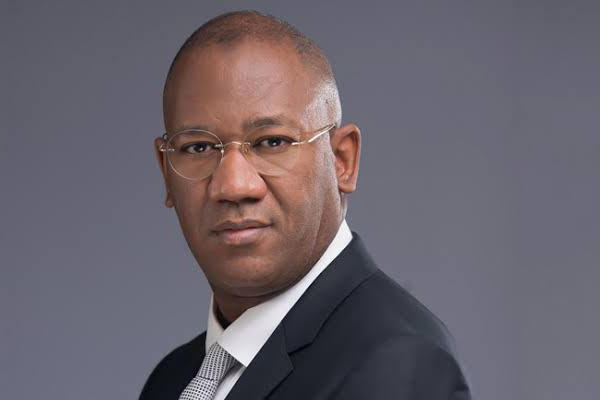
The 2023 Labour Party (LP) vice-presidential candidate, Datti Baba-Ahmed, has warned Nigerians that the opposition coalition under the African Democratic Congress (ADC) is giving false hope about rescuing the country from underdevelopment.
“They are deceiving us,” Baba-Ahmed said during an interview on Channels Television’s Politics Today on Friday.
Baba-Ahmed, who ran alongside Peter Obi in the 2023 presidential election won by Bola Tinubu of the All Progressives Congress (APC) expressed his willingness to be Obi’s running mate in the 2027 presidential election.
Although Obi has shown interest in the 2027 race and is aligning with ADC coalition figures such as David Mark, Atiku Abubakar, Nasir el-Rufai, Rotimi Amaechi, and Rauf Aregbesola, Baba-Ahmed stressed that he wants Obi to remain in the Labour Party and contest as its presidential candidate.
“I’m in the Labour Party. I’m a Peter Obi man. I still want Peter Obi to come back to the Labour Party and contest the 2027 election,” Baba-Ahmed stated.
When asked about his plans for the 2027 race, Baba-Ahmed confirmed his readiness to serve as a running mate for like-minded leaders committed to restoring Nigeria.
“If Nigeria is still around and there is an electoral system to follow, my love for Nigeria is undying.
I would appropriately associate with groups and individuals aligned with restoring the nation,” he said.
Baba-Ahmed also revealed two potential leaders he would consider deputising, with Peter Obi being his primary choice. “The first one has not said anything.
The second one is Peter Obi. I’m always with Peter Obi until he decides not to,” he added.
News
Tinubu Secures Fresh $238m Loan from Japan

Nigeria has secured a $238 million loan from the Japan International Cooperation Agency (JICA) to support the expansion and modernization of the national power grid.
The deal, confirmed during engagements at the ninth Tokyo International Conference on African Development (TICAD9) in Yokohama, Japan, reflects a strategic shift towards implementation-driven energy development.
President Bola Tinubu highlighted that Nigeria’s participation at TICAD9 focused on concrete, outcome-oriented partnerships rather than ceremonial diplomacy.
“We are moving from planning to implementation, from agreements to delivery, and from promises to measurable results,” he said.
Details of the JICA Loan Project
The $238 million loan, supported by a Federal Executive Council counterpart funding of ₦19,083,192,805.30, will finance significant upgrades to Nigeria’s transmission infrastructure.
Key components of the project include:
Construction of 102.95 km of new 330kV double-circuit lines
Construction of 104.59 km of 132kV double-circuit lines
Development of four 330/132/33kV substations and two 132/33kV substations
Multiple line bay extensions to improve efficiency and reduce system losses
According to Minister of Power, Chief Adebayo Adelabu, the partnership with Japanese companies such as Toshiba, Hitachi, and Japan’s Transmission & Distribution Corporation is essential for unlocking Nigeria’s energy potential.
“Our focus is on transmission infrastructure, operational efficiency, and strategies to reduce system losses.
This $238 million loan from JICA provides the backbone for that transformation,” Adelabu explained.
Adelabu acknowledged Japan’s consistent support for Nigeria’s power sector, highlighting contributions in infrastructure, technical studies, training, and financing.
He emphasized that JICA’s backing is critical to expanding access to reliable, affordable, and sustainable electricity across the country.
The project aims to strengthen Nigeria’s power transmission network, improve system reliability, and enhance overall efficiency, ultimately supporting industrial growth and meeting rising electricity demand nationwide.
Africa
‘Misplaced Priority’: Peter Obi Blasts FG’s ₦142bn Bus Terminal Project

Former Labour Party presidential candidate Peter Obi has slammed the Federal Government’s approval of ₦142 billion for the construction of bus terminals across Nigeria, describing it as a reckless misplacement of priorities.
Obi issued a statement on Friday, August 22, via his Official X formerly Twitter platform, warning that the project reflects poor leadership and lack of focus in managing Nigeria’s limited resources. He titled his statement, “₦142 Billion for Bus Terminals.”
According to him, the true test of leadership is how scarce resources are prioritized.
He stressed that investing such a huge amount in bus terminals while critical sectors like healthcare suffer shows a government that is out of touch with citizens’ realities.
Obi said: “The difference between success and failure in any nation is how leaders prioritise resources.
The decision to spend ₦142 billion on six bus terminals exposes a lack of competence and vision. It is a clear sign of poor leadership.”
The Federal Executive Council had recently approved the funds for the construction of one modern bus terminal in each of the six geopolitical zones.
The government described it as part of efforts to modernise transport infrastructure and improve mobility nationwide.
But Obi strongly disagreed. He compared the allocation to healthcare funding, pointing out that the combined budget for all teaching hospitals and federal psychiatric centres in Nigeria is less than ₦100 billion in the 2024 budget.
“This is disturbing,” Obi continued, “because health remains one of the most critical sectors of development. Yet it is underfunded and deteriorating rapidly.
The World Health Organization has reported that over 20 million Nigerians live with mental health conditions.
This is a tragic irony. How can the government ignore this crisis and focus on bus terminals?”
He argued that the health sector, alongside education and poverty reduction programs, deserves priority attention.
Obi insisted that until government spending reflects the real needs of Nigerians, the country will remain trapped in poor governance.
Many Nigerians have also taken to social media to express anger, echoing Obi’s concerns. Critics argue that the decision proves the Federal Government is disconnected from the economic struggles of ordinary citizens.
For Obi, the ₦142 billion project is not just a case of wrong timing.
He sees it as a clear example of governance failure and misplaced priorities.
News
JUST IN: Benue Assembly Suspends Four Lawmakers

The Benue State House of Assembly has suspended four lawmakers for six months after they allegedly attempted to impeach Speaker Aondona Dajoh on Thursday night.
The affected members are Alfred Berger of Makurdi North, Terna Shimawua of Kian constituency, Cyril Ekong of Obi constituency, and James Umoru of Apa constituency.
Their suspension was announced during Friday’s sitting.
Majority Leader Saater Tiseer raised a motion of urgent importance, accusing the four lawmakers of plotting to destabilize the assembly with what he described as an unnecessary crisis.
The House adopted the motion, and the Speaker ordered the Sergeant-at-Arms to escort the suspended lawmakers out of the chambers.
The suspension also triggered changes in leadership positions. Berger, who previously served as the Assembly’s spokesperson, was replaced by Audu Elias on the directive of Speaker Dajoh.
Tension had been brewing in the Benue Assembly in recent weeks, with divisions among members deepening over political alignments and governance issues.
Thursday night’s failed impeachment move reportedly escalated the crisis, leading to Friday’s disciplinary action.
The suspension marks another turbulent chapter in the state’s politics.
In recent months, the Benue Assembly has clashed over commissioner nominations, governance direction, and security concerns across the state.
Observers fear the latest crisis could distract the House from tackling pressing issues, including widespread insecurity and economic hardship facing residents.
Political analysts also warn that the suspension may further polarize members and deepen divisions in the ruling structure of the Assembly.
The development adds to Benue’s growing list of political confrontations, highlighting the fragile relationship between lawmakers and leadership in the state.
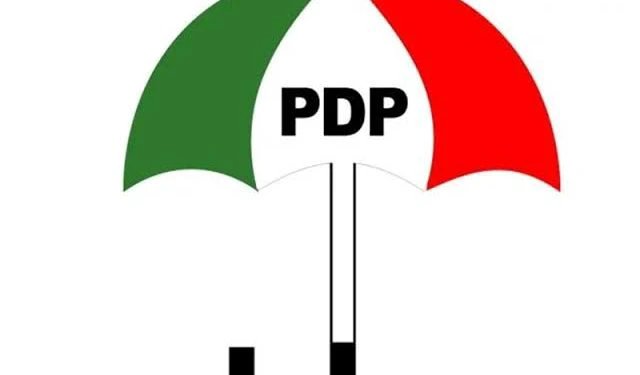
(DDM) – Governor Seyi Makinde of Oyo State has stressed that the Peoples Democratic Party (PDP) must be fully united before serious talks on its 2027 presidential candidate can begin.
Diaspora Digital Media (DDM) gathered that the call came during the PDP Southern Zoning Consultative Summit held in Ikeja, Lagos, where top party stakeholders convened to deliberate on internal reforms and a credible zoning formula ahead of the party’s national convention.
Makinde told reporters after the closed-door session that rebuilding trust, strengthening internal cohesion, and reconnecting with Nigerians must be the primary agenda before candidate selection.
He warned that rushing into zoning or candidate discussions without first addressing structural cracks within the party would doom the PDP to another electoral disaster.
The governor noted that critics who claim PDP is politically dead will be proven wrong as the party regains its organisational strength.
He insisted that the outcome of the Lagos meeting had already demonstrated the party’s willingness to put aside internal disputes for the sake of unity and national credibility.
Makinde emphasised that the summit was not statutory but necessary to engage stakeholders across all southern states in meaningful dialogue.
He added that democracy thrives on consultation, inclusivity, and respect for diverse voices within a party structure.
He said democracy should not be reduced to mere power grabs but should reflect credible engagement that represents the will of the people.
The Lagos summit was attended by prominent PDP leaders, including Governor Douye Diri of Bayelsa State, Governor Ademola Adeleke of Osun State, and representatives of Governor Peter Mbah of Enugu State.
Also present were former PDP Deputy National Chairman Chief Bode George, Board of Trustees Chairman Senator Adolphus Wabara, and several former governors including Olagunsoye Oyinlola, Udom Emmanuel, and Sam Egwu.
Makinde revealed that at least 12 of the 17 southern states were fully represented by zoning committee members, National Assembly representatives, and party elders.
The gathering also discussed the strategic role of the southern region in shaping the PDP’s chances in 2027, particularly given the intense political calculations expected around power rotation.
PDP’s history of zoning has been controversial, often sparking internal divisions over whether the presidency should rotate between the North and South.
In 2022, the party faced criticism after nominating Atiku Abubakar from the North despite calls for a southern candidate, a decision many analysts say fractured its support base in the 2023 elections.
This historical backdrop has heightened expectations ahead of the 2027 convention, with southern leaders pressing for early consultations to avoid past mistakes.
Makinde acknowledged that winning recent by-elections, particularly in Oyo State, had boosted PDP’s morale and disproved claims that the party was politically irrelevant.
He said the success reflected the resilience of PDP supporters and the commitment of its leaders to reclaim national dominance through hard work and strategic alliances.
The governor stressed that Nigerians are yearning for an alternative to the ruling All Progressives Congress (APC), adding that the PDP must present itself as a credible force.
He explained that Thursday’s meeting was part of a broader strategy to ensure the party’s zoning formula reflects fairness, justice, and national balance.
He also confirmed that more consultations will take place across southern states and eventually at the national level before the convention.
Political observers note that Thursday’s summit reflects growing pressure on the PDP to consolidate its base ahead of a highly competitive election season.
Analysts argue that the party’s ability to reconcile its factions and adopt an inclusive approach could determine its viability in 2027.
Makinde expressed confidence that the deliberations in Lagos would pave the way for further engagements capable of repositioning the party for victory.
He urged Nigerians to remain patient and optimistic as the PDP undertakes internal reforms to rebuild confidence in its leadership.
The meeting was called under the auspices of the PDP Zoning Committee, chaired by Governor Douye Diri, and was described as a success by attendees.
Stakeholders are expected to reconvene in the coming weeks for broader consultations and final recommendations before the party’s National Executive Council meeting.
Makinde closed by reiterating that zoning, candidate selection, and electoral strategy would only succeed if the PDP first restores unity, discipline, and credibility within its ranks.
-
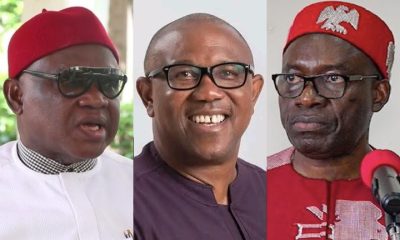
 Featured4 days ago
Featured4 days agoYour Attacks on Peter Obi Are Petty, Stop It! Chekwas Rebukes Soludo
-
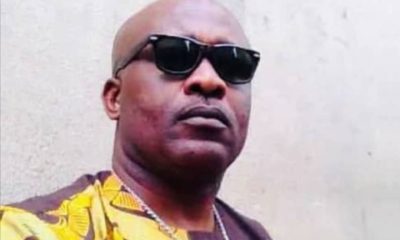
 News4 days ago
News4 days agoTension in Anambra community as senior police officer shoots kinsman dead
Colleagues, others try cover-up; victim's family fights back
-
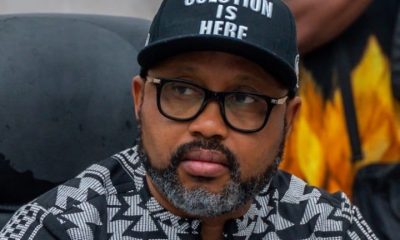
 News7 days ago
News7 days agoAnambra South Bye-Election: APC Chief Rescues Deputy Gov Caught In Vote Buying From Angry Youths
By Chuks Collins, Awka
-

 News5 days ago
News5 days agoNigerian visa applicants must provide 5-yr social media history — US embassy
-

 Celebrity/Entertainment22 hours ago
Celebrity/Entertainment22 hours agoHow Nigerian TikToker Geh Geh Made ₦45 Million in One Night
-
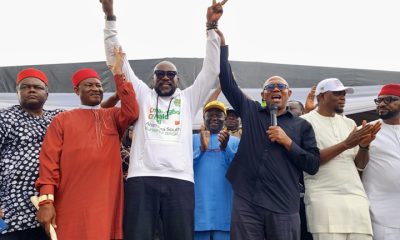
 Analysis6 days ago
Analysis6 days agoSystemic Sabotage: How APC, INEC Colluded To Undermine Amamgbo’s Senatorial Bid
By Arthur Ezechukwu
-

 News3 days ago
News3 days agoTerrorist Organisation: APC, PDP Members in US, UK, France Risk Deportation
-

 Celebrity/Entertainment5 days ago
Celebrity/Entertainment5 days agoWhy single mothers can’t raise boys into proper men — Jim Iyke
-

 News7 days ago
News7 days agoBREAKING: Troops arrest Nigeria’s most wanted terror kingpin
-

 News2 days ago
News2 days agoVandal electrocuted while vandalizing Aba power infrastructure



